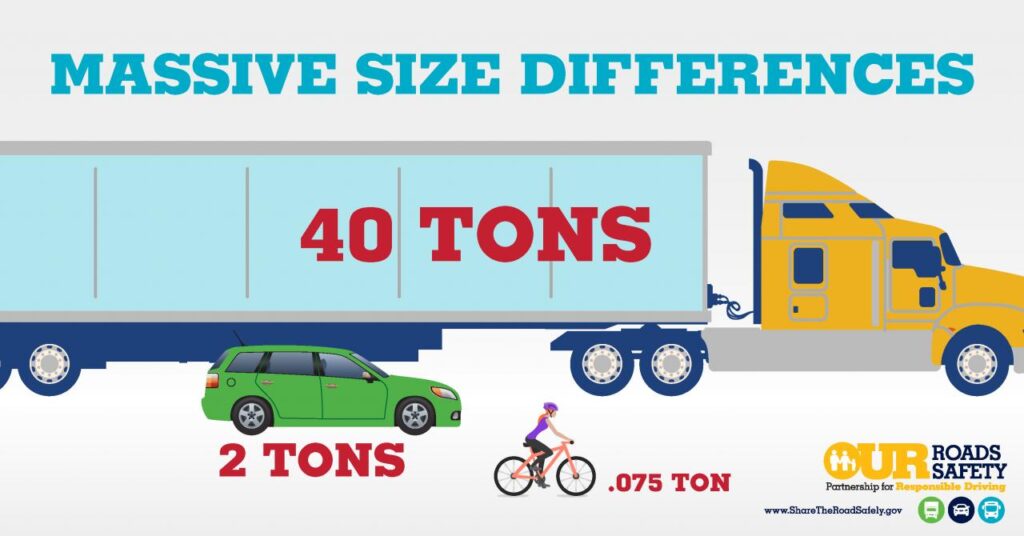Free Case Evaluation
(253) 272-5226Free Case Evaluation
(253) 272-5226Getting hit by a commercial truck isn’t the same as getting hit by another passenger vehicle. In fact, there are several key differences that can make these claims more complicated. However, the good news is that a commercial truck driver is likely to be well insured. If you’re an injured victim, this means that you likely will have access to adequate compensation to cover your medical bills, pain, and suffering.
As personal injury lawyers, we wanted to share a few thoughts about what you should know if you’ve been hit by a commercial truck. Please note that what we’re about to share is general information only. If you’ve been in an accident and need targeted advice, please reach out. (It’s always free to call or message us for a custom evaluation.)
It should come as little surprise that injuries can be more severe when you collide with a truck versus another car. Consider: a large truck can be as many as 20 to 30 times heavier than your vehicle! The sheer size disparity can result in a higher instance of serious injuries and even fatalities.

Source: FMCSA
Some of the injuries common in a commercial trucking accident include:
Some people may harbor stereotypes that truckers are fatigued, dangerous drivers. But research shows that commercial truck accident fatalities have been decreasing. When we discuss things like truck accidents, it’s important that we tell it like it is.
Here are some other key findings from recent reports from FMCSA and NHTSA:
To sum up, you are far more likely to be in a crash with another passenger vehicle than a big rig. However, if you’re unlucky enough to be struck by a large truck, you may suffer greater injuries due to the massive size and force.
So, why do trucking accidents happen? According to Justia, most trucking accidents involve human error of some kind. In other words, they are preventable.
Here are some of the common trucking accident causes:
Of course, sometimes there is more than one contributing factor to a truck collision. No matter what, it’s important to determine what happened and who’s at fault. The at-fault party will be responsible to pay for property and injury damages to the victims.
In most typical motor vehicle accidents, there are two parties. But in a trucking accident, there may be many involved parties.
For instance:
On top of this, there may be many insurance representatives and lawyers with varying degrees of interest in the crash.
If you’ve been hit by a large truck, chances are there is additional evidence that wouldn’t exist in a typical crash. For instance, trucking companies require their drivers to keep detailed logs. These logs track departure, arrival, and rest times. This information can provide insight about any broken regulations or if the driver may have been fatigued at the time of the crash. Additionally, most large trucks contain black boxes, which store data such as the driver’s speed.
However, you might find yourself in an uphill battle trying to access this evidence on your own. An experienced and savvy injury attorney could help secure this and other evidence to help support your claim.
One thing many truck accident victims may not be aware of is that several insurance policies could come into play. In other words, you may be able to receive compensation from more than one source.
For instance:
Depending on the circumstances, there may be others as well. Again, this is where an experienced injury lawyer could step in.
Clearly, bringing an injury claim forward after you’ve been in a truck accident is complex. We recommend that you enlist the help of an experienced commercial trucking accident lawyer. A lawyer could take the lead on your case and make sure that your interests are represented.
At Ladenburg Law, we always offer free consultations. So, feel free to give us a call or send us a message about what happened. If we can help, we’ll let you know. Even better, if we choose to work together, you’ll only pay us a fee if we win you a settlement. That’s right; there’s nothing up front to pay. Since there’s no risk or obligation to you, consider reaching out right now.